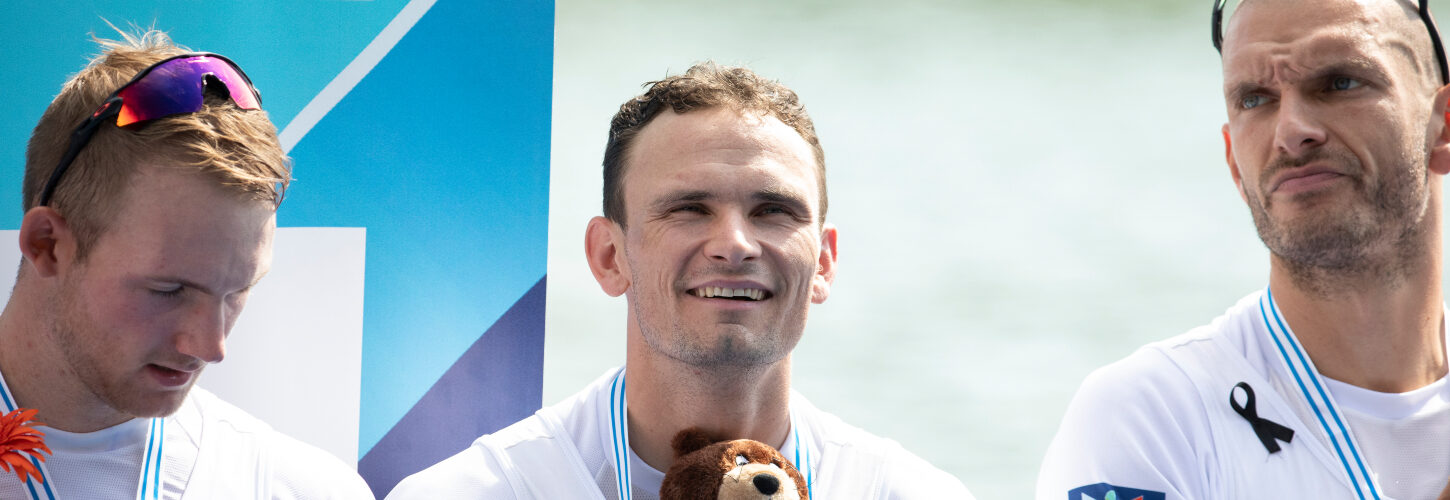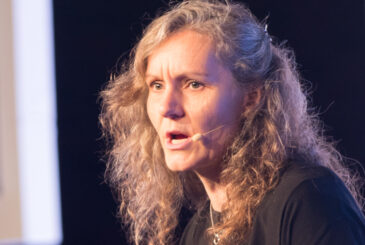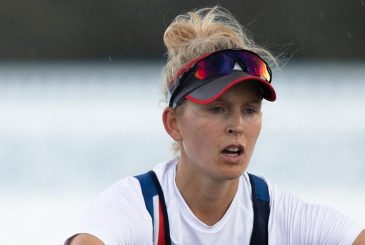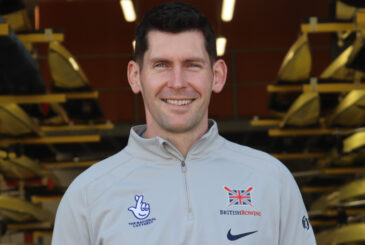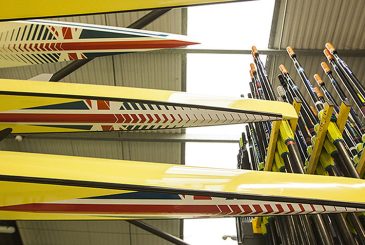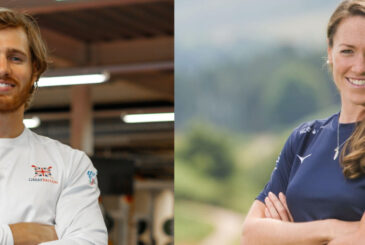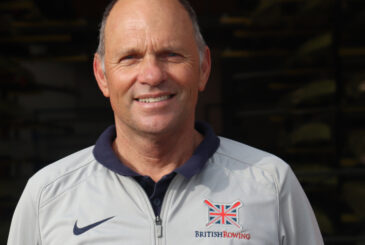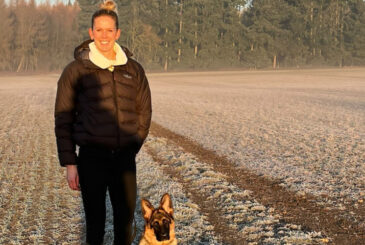Josh Bugajski would have missed the Tokyo Olympics if they had taken place last year because of a freak injury. Just the latest in a list of things in his life that could have turned out differently. He speaks to Martin Gough
When Josh Bugajski, pictured above at centre, takes his place in the Great Britain men’s eight at the start of an Olympic summer like no other before it, he is unlikely to have either the time or the inclination to think about how different things could have been.
However you look at Bugajski, he is far from an average rower. Few can expect to make an Olympic debut aged 30. Only the best in the world can produce numbers on the rowing machine like he can. And many start rowing in the public school system, rather than his background on the edge of a council estate in Stockport.
“When I got on the rowing machine it felt like I didn’t have control of my right side; I finished the session in immense pain”
Even though he was firmly established as a Great Britain oarsman at the start of 2020, he would have missed the Tokyo Olympics had they been held last July, because of a freak injury that saw him ruled out of the squad last March.
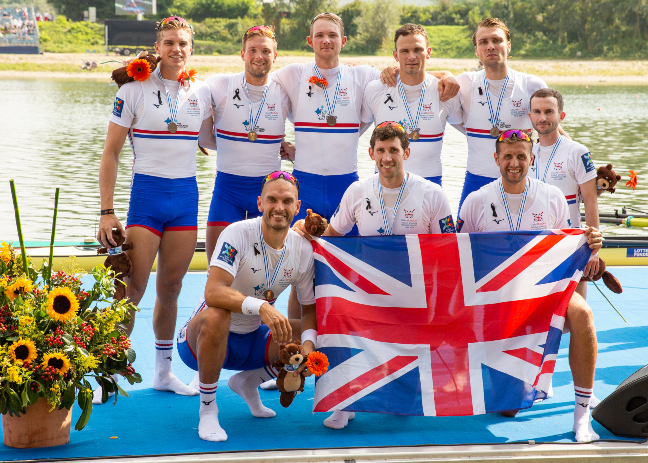
At the start of last year, Bugajski flew with the squad to Namibia for a training camp. He thinks he slept in an odd position on the long-haul flight and woke up with a sore shoulder.
“I got the physios to have a look, but the next time I got on the rowing machine it felt like I didn’t have control of my right side,” he recounts. “I finished the session in immense pain.”
The issue was eventually diagnosed as accessory nerve palsy. The nerve running down the side of his neck had broken and a significant proportion of the muscle down the side of his back had stopped working.
“It absolutely baffled the experts,” Bugajski says. “The specialists didn’t understand why it happened. Usually this is something that would happen in a motorbike accident or a very bad rugby tackle.”
With a required recovery period of six to 12 months as the nerve healed, then head coach Jürgen Grobler had little option but to stand down one of his most powerful athletes from the squad.
“That was the Olympiad done,” says Bugajski. “It was a completely logical, reasonable decision at the time. I think Jürgen was surprised at how I took it, but I already knew what the prognosis was.
The week afterwards several of his housemates were named in the first GB squad of what was expected to be Olympic year.
Bugajski recalls: “They were all ecstatic while I was at home thinking this really sucks! The stress of that year for them had culminated in a seat in a boat whereas for me it culminated in being sat at home on a bike.
“But then it was a real rollercoaster because the following week Tokyo was cancelled for a year.”
After 10,000km of cycling, first indoors then out, Bugajski returned to the GB training centre at Caversham in September, was back on the water a month later and began feeling over Christmas that he was getting back to his best.
“It’s been a real relief. I’m right back on track now. The erg scores are right back at their best. The team, as a whole, has strengthened physically and it’s now starting to show on the water as well.”
“When we get into everyone’s backgrounds I start to realise where my story differs from others”
Great Britain’s ergo scores are rarely made public, but Bugajski pulled an eye-popping five minutes 47 seconds at the 2018 British Rowing Indoor Championships.
In fact his first ever appearance on a rowing machine, a decade ago at Cardiff University, made a similar impact. The day after his 20th birthday, despite a hangover and a bout of ‘freshers flu’ he recorded a 1k score of three minutes seven seconds.
“I didn’t know whether it was good or bad, but it turned out it was very good for a novice beginner.”
It wasn’t a sport he had considered while growing up in Stockport, east of Manchester. He played football and got into kick-boxing, although he had watched the Boat Race and Olympic rowing on TV.
“I did see it as being an exclusive sport and definitely didn’t think of it as something that I would end up doing,” he says.
“Although you wouldn’t pick me out of a crowd of rowers as someone who looks out of place, when we get into everyone’s backgrounds I start to realise where my story differs from others.”
Bugajski appeared at the launch of the Love Rowing, British Rowing’s charitable foundation, which aims to create accessible and inclusive rowing programmes for communities currently underrepresented in the sport. He hopes to be able to do more in future.
His own first steps in rowing were relatively easy: by the end of his second season, under the wing of Welsh Rowing, he was taking part in the 2012 Under-23 World Championships.
From there he admits he stagnated a little, and when he took a place at Oxford University in 2014 to study for a Masters in Oncology, he was out of the reckoning for the Rio Olympics and starting to think about life after rowing.
“I was excited to be part of the Boat Race stuff but that was maybe a bonus, end-of-career hurrah before going into a job,” he says.
“It ended up working out very differently. I was terrible at sweeping in my first year at Oxford and didn’t make the top boat but the next two years I made it into the blue boat.”
The key year was 2017, when he won the Boat Race as part of an Oxford crew bolstered by several internationals. He then joined the Oxford Brookes squad and won the Ladies’ Challenge Plate at Henley Royal Regatta.
Bugajski began training at Caversham the following year and really established himself in the squad in 2019, when he was part of the bronze-medal winning eight at the World Championships.
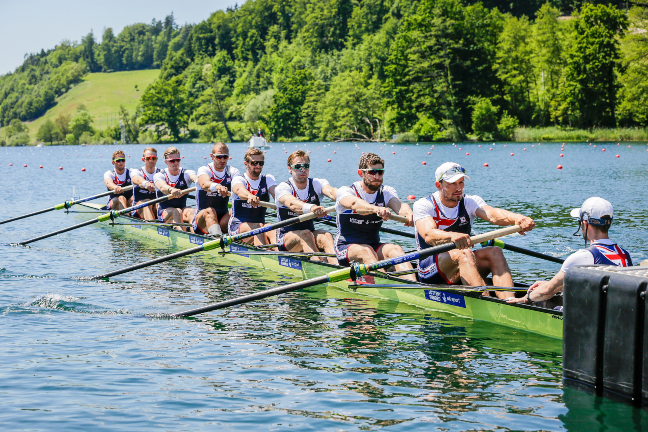
For the Olympic summer, though, the squad want medals of a different colour.
“All eyes are on gold,” says Bugajski. “To get there requires us looking inwards at what we’re doing because we can’t control what anyone else is doing. If we can do that really well then the medal will sort itself out, but the goal for everyone is gold.”
Of course, the Great Britain squad has had to adapt to the strictures of the COVID pandemic like everyone else. They have benefitted from an exemption for elite athletes, which allowed them to continue training subject to strict protocols, such as wearing masks while lifting weights.
Bugajski’s brother, girlfriend and a few family friends have changed their plans and will now make an event at home rather than making the trip to Tokyo for the Olympics.
The first training camp of the year took place at the England football HQ in Burton-on-Trent, rather than in Namibia – which at least meant that there was no danger from flying.
Traditionally, GB’s openweight men travel to Silvretta in the Austrian Alps for an infamous altitude camp before their biggest races of the year. In the past this has been under the watchful eye of Grobler, under whose coaching GB have won gold at each of the last seven Olympics.
This time Steve Trapmore, an Olympic champion in the eight in Sydney 21 years ago, is the lead coach for a men’s sweep squad still searching for their first global gold medal of this Olympiad.
“It reassures us in that we have all the data from when golds have been won,” says Bugajski. “If our data is better than before then we know we’re in a good position. At the moment we’re putting ourselves in a good position.
“Coming into the event I’m sure we’ll feel the pressure of past Olympiads and the success we’ve had before on our shoulders a bit, but we will do our very best to take that burden and turn it into something great.”
Photos: Nick Middleton


